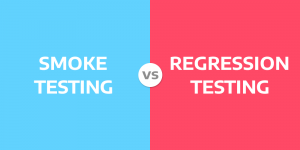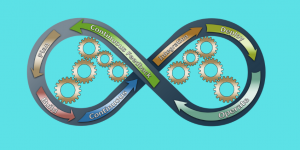
Growing numbers of small and large-scale businesses require cutting-edge apps or websites to stay competitive in the modern business scenario. Software testing service providers utilize the best tools to ensure the product works properly at every stage. For this, they even leverage the AI-powered tools and techniques. They are considered faster, smarter, and more secure. They are considered best when it comes to delivering a tool that is safe from cyber threats and other vulnerabilities.
Whether it’s an e-commerce platform or a financial institution, software developers incorporate comprehensive features and functionalities into the software. Testers ensure that all these functionalities work properly. So, if you want to know AI can help test a tool, then read this post. Here, you’ll get to discover how penetration testing services in India put software to the test using artificial intelligence algorithms. Let’s dive in…
Applications of AI in Software Testing

A few applications of artificial intelligence in software testing include:
- Test Case Generation: Automatic test case generation revolutionized mobile app testing and has taken it to a new level. It learns from different apps’ builds and iterations to form a robust app to identify and generate test cases. The noteworthy point is that it does not require human intervention to perform visual or functional testing, ensuring high standards across applications. However, it is a challenging method because it requires the support of extensive data analytics and adaptability to create automatic test cases.
- Anomaly Detection: In contrast to manual tracking, AI functions better, faster, and smarter to track unnatural behavior or patterns software. It typically examines data points to identify suspicious outliers that look different from other patterns or trends. Though it is highly preferred by industries like e-commerce, finance, and cybersecurity, every industry should consider this to prevent fraudulent activities and safeguard data.
- Defect Prediction: Defect prediction is the procedure of using process metrics to identify and predict faults or bugs in the software. By identifying weak areas, testers can focus on eliminating vulnerabilities and preventing software failure.
- Automated Test Execution: AI-powered test executions run automated test software or test scripts on software applications, ensuring no human intervention. The best part is that it is fast, safe, reliable, and cost-effective to detect bugs on time. Since automated test execution is time-saving and less resource-intensive, it helps release the software on time and stay competitive.
- User Behavior Simulation: Artificial intelligence can simulate human behavior and system interactions to ensure effective software testing. With the help of virtual users and real-world-like situations, it becomes easier for testers to identify the product’s limitations and optimize its performance.
- Natural Language Processing for Requirements Analysis: Natural language processing helps human analysts analyze documents relating to natural language requirements. With its help, testers can streamline complex data structures and the test process. This way, they can detect whether or not the software functions as it intends to be.
Tips for Implementing AI in Software Testing

Ready to implement AI in software testing? Before you delve into the magical world of machine algorithms, take a look at the following tips to ensure the efficiency of the software test:
TIP NO. 1: Test the Small Projects
First, the software development team should assess the feasibility and effectiveness of AI tools and methodologies in the real-world testing environment. For this, they should choose small projects and ensure the efficiency of AI-based testing frameworks in identifying bugs and glitches.
TIP NO. 2: Data Quality and Diversity
Prioritize data quality, accessibility, and diversity to train the AI models. Remember, high-quality datasets help the models understand the system behavior, user interactions, opportunities, and challenges in a better way. They ensure a comprehensive testing procedure.
TIP NO. 3: Team Collaboration
Team collaboration is a MUST for delivering bug-free and safe products. Team collaboration allows organizations to fix the issues in a timely manner and release the product as scheduled. Hence, as a software developer, you should also foster a team collaboration between data scientists, AI experts, and testing teams. This allows developers and testers to find the solution to the problems and implement effective strategies. Hence, all lines of communication among team members should be kept open. And yes, let them share their experiences and suggestions. It helps make informed decisions.
TIP NO. 4: Clear Objectives
Software testers should determine clear objectives for the implementation of artificial intelligence in the software testing. The goals should include extensive test coverage, high-quality datasets, effective test execution, and enhancing anomaly patterns.
TIP NO. 5: Select Suitable Tools and Techniques
Based on the project needs and software testing requirements, the developer should select suitable AI-powered tools and techniques. You should always consider factors such as scalability, ease of accessibility, installation process, and compatibility with other tools and techniques. Considering these factors will help you choose the right tools.
Let’s now take a look at the ways you can use OpenAI for software testing. Here we go…
How to Use OpenAI for Software Testing
Looking for how to create AI-based test plans effectively and efficiently? Go over the following pointers to learn how to use OpenAI for software testing. Let’s get started…
Prerequisite
- Launch the OpenAI’s ChatGPT interface and navigate to the profile settings
- Then, click on the option customize ChatGPT to proceed
- Input the details required to tailor the software
- Save the changes.
Main Test Procedure
- Test Scenarios: Developers can generate test scripts for API requests. For instance, if they need to test the authorization of the software, ChatGPT can help them generate test steps to validate the product.
- Requirement Traceability Management: Use artificial intelligence algorithms to effortlessly test and link test cases.
- Requirement Test Suite Identification: Select the most appropriate test case for AI-powered regression testing. The identification of the relevant test suite ensures an efficient testing process with a focus on saving time and effort.
- Integration Test Generation: With the help of artificial intelligence, you can test how different parts of the software interact together.
- Sign-off Email Generation: Automate AI-powered email generation to simplify the sign-off process. This allows the easy interpretation of the test results.
- Conditional Sign-Off Documentation: Use AI models to draft sign-off documentation, ensuring trustworthiness in the process.
- Closure Report Generation: Natural Language Processing (NLP) generates comprehensive reports with a summary of all the testing procedures.
AI offers numerous benefits, especially in software testing. Read the next section for the benefits of AI in software testing. Here we go…
Benefits of Using AI in Testing
There are plenty of amazing benefits that artificial intelligence in software testing can provide. Here are some of them; take a look…
1. AI Speeds Up the Test
First things first, Artificial Intelligence speeds up the test. Yes, the major advantage of using artificial intelligence in software testing is that it speeds up the whole procedure. Testers do not need to select codebases and calculate anything manually. AI automates repetitive tasks, making it easier for testers to detect potential vulnerabilities or bugs.
2. AI Becomes Smarter
As you know, the machine algorithms of the AI mimic the human brain to perform critical analyses. When AI repeatedly performs the same tasks, it enhances its proficiency in those areas. Therefore, by incorporating AI into software testing, testers can enhance the automation of tests.
3. Saves the Resources
Since AI reduces the time and effort required for testing, it helps developers save resources. They can allocate resources efficiently and focus on those tasks that matter the most. Conversely, manual testing or other kinds of automated machines used for tests are more resource-intensive.
4. Enhanced Data Analysis
Testers can leverage enhanced data analytics and insights by implementing AI in software testing. It helps find information that is harder to locate. Based on the AI-generated comprehensive analysis, testers can locate weak areas in the software that they might miss spotting when testing manually. So, it’s safe to say that implementing AI in software testing helps software developers ensure early intervention to fix the issues.
5. Optimization of the Testing
Another advantage of using AI in software testing is that it ensures the quality of tests, preventing the risk of any knock-on issues in the software in the final stage. Conversely, manual testing does not provide better data to optimize the product’s performance. Therefore, testers utilize AI to verify that the software functions correctly.
6. Adaptability
AI-powered testing frameworks constantly evolve themselves according to the users’ needs and software’s requirements. Consequently, they become better based on the upgraded data and feedback. Their adaptability eliminates the vulnerabilities and ensures the software’s effectiveness over time.
7. Cost-Effective
The best part is that AI in software testing detects issues early in the software development life cycle. This way, it reduces the cost; otherwise, the late detection of the problem causes developers to go beyond their project’s budget. In such a situation, software testing services in India helps to make an impact.
8. Predictive Analytics
Essentially, AI allows developers to do predictive analysis of a vast and intricate database. They can identify defects, determine actions, and optimize testing strategies. With AI, they can track historical data to identify risks and areas for improvement. Moreover, it ensures an optimized resource allocation and effective test planning. This way, the team can make a well-informed decision to develop superior-quality software.
9. Scalability
AI-driven testing tools and techniques can scale seamlessly to handle large and complex datasets, ensuring an optimized resource allocation. There are many cloud-based software platforms that provide users with a scalable infrastructure. With their integration, the users can achieve agile development in their software development life cycle.
Like any other tool, AI also has certain limitations. Check out the next section for those limitations. Read on!
Limitations of Using AI in Software Testing
Here are some of the limitations of using artificial intelligence in software testing. Take a look at them for a better understanding…
1. AI Is Difficult to Train
It might surprise you, but the fact is AI is really difficult to train. To make sure AI tests properly to identify knock-on issues in the initial stage, developers need to train the machine algorithms. Data scientists classify and label the data to its algorithms, ensuring they can effectively understand the software’s features and functionalities.
However, it is a complicated process because it requires training over and over to understand new data, challenges, and vulnerabilities. Otherwise, it may fail to produce desired results. Additionally, the use of AI is limited in analyzing complex structures or data.
2. Data Can Be Biased
Another issue that software developers may face when utilizing AI is the potential for biased data. If the data used in machine algorithms is biased, it can lead to unreliable results or analysis. If the developer modifies the software based on prejudiced assumptions, this can result in more problems.
For instance, if an AI system is biased toward a consumer group, the results that it will show are unrealistic. In such a situation, expecting any accurate information from the AI is wrong. In short, data quality, diversity, and accessibility become challenging with biased data.
3. Software Bugs or Issues
Artificial intelligence in software testing causes occasional bugs or issues. For instance, it may red flag those weak areas that are not vulnerable to cyber threats in reality. Sometimes, it fails to identify potential issues. These unrealistic findings build the trust of testers in manual testing.
4. Lack of Skilled Professionals
Remember, The implementation of AI in software testing requires Machine Learning expertise, along with skilled professionals in data science and software engineering. However, getting qualified and experienced professionals in data analysis and machine algorithms is a challenging task. The skill gap prevents software engineers from adapting AI-powered technologies to test software’s efficiency.
5. Difficult to Understand
Lastly, understanding AI can be challenging at times, especially if you are using it occasionally or just beginning to work with it. Yes, it is yet another downside of using AI in software testing. Its complex algorithms are difficult for naive developers to understand and interpret. Transparency and adaptability are vital to encourage the use of machine algorithms for software testing.
The Bottom Line
So, this is all about how you can use AI in software testing. In a nutshell, AI in software testing helps testers enhance the efficiency, accuracy, and scalability of the product. In contrast to manual testing, it tests various types of the product’s functionalities efficiently and easily.
In addition, AI reduces human errors and accelerates testing cycles by automating repetitive tasks. It makes the testing process more proactive and robust. Leveraging AI allows teams to focus on more complex testing scenarios, ultimately improving software quality and enabling faster releases. Embracing AI in software testing is a forward-thinking approach that strengthens reliability and drives innovation in development practices. Additionally, it prevents the risk of expensive repair.






